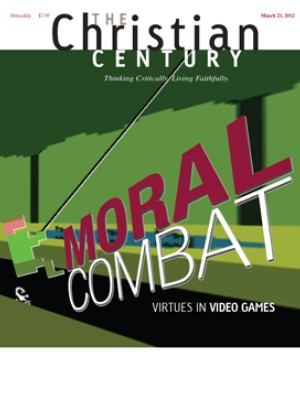John Hick, influential philosopher of religion
John H. Hick, a prolific author renowned on British and U.S. campuses for his forthright approach to major questions in Christology and interfaith relations, died at age 90 on February 9 in Birmingham in his native Great Britain.
It was at Princeton Theological Seminary, where he taught from 1959 to 1963, that Hick published his introductory college textbook, The Philosophy of Religion, which went through four editions to sell 600,000 copies. In all, Hick wrote or edited more than 20 books.
Hick organized a conference of philosophers and theologians during Princeton Seminary's 150th anniversary, then edited its proceedings with the title Faith and the Philosophers. That book "influenced the intellectual agenda in the philosophy of religion for many years to come," said PTS professor of philosophy Gordon Graham.
Read our latest issue or browse back issues.
Theologian John Cobb, emeritus professor at Claremont Graduate University in California, said Hick was preeminent in opening the philosophy of religion field "from being narrowly a reflection about Western and primarily Christian theological tradition to taking fully into account the pluralistic religious world in which we live."
Hick taught at Claremont Graduate University from 1979 to 1992—first part-time, then holding an endowed chair and heading the university's program in religion from 1985 to 1990. From the responses at Claremont to Hick's death, CGU President Deborah Freund said it was apparent that "Professor Hick touched as many people with his kind heart as with his intellect."
His research and writings generated conflicts with church authorities in the U.S. when in the early 1960s he sought recognition as a Presbyterian minister, his affiliation back in England. While teaching at Princeton, he told presbytery officials that he was "agnostic" on the historical truth of the virgin birth and did not consider the tenet an essential matter in Christian faith. He was eventually allowed to become a member of the Presbytery of New Brunswick.
A similar church battle ensued in the mid-1980s at Claremont when some local ministers in the Presbytery of San Gabriel objected to Hick's application for ministerial acceptance. Told that his application would be divisive, Hick withdrew it.
As a young man, Hick had become deeply interested in ministry under the influence of evangelistic teachings, and when England entered World War II in 1939, he registered as a conscientious objector.
"He was a Christian believer who cared about Christian truth, but he later moved from positions he thought were too narrow to more liberal ones," said Cobb in an interview with the Century. "I would say his way of thinking was so straightforward—one might say literal—that when he gave up a belief that he had during his fundamentalist days, he was very explicit in saying so."
Added Cobb: "Those of us who grow up in a more liberal tradition sometimes are more likely to emphasize our appreciation for symbolic meaning. He was going the other way—he didn't want to compromise with 'the truth.'" Both Cobb and Hick were very active in interreligious dialogues and research, "though I have a very different philosophy than his," Cobb said.
A lengthy obituary published in the Telegraph, a British newspaper, said that Hick was remembered in part for a philosophical concept he called "eschatological verification, which held that since the truth or otherwise of ultimate questions cannot be settled until the end of time, it is necessary meanwhile to accept a plurality of opinions."
During his 15-year association with Birmingham University which ended in 1982, Hick's perspective changed markedly; in 1976 he edited a symposium titled "The Myth of God Incarnate." The contributors, mostly Anglican scholars, argued that terms such as Son of God make use of mythological language but were "none the worse for that," said the Telegraph. Hick expanded that theme in a book, The Metaphor of God Incarnate (1993).
Hick was chosen to deliver the prestigious 1986–87 Gifford Lectures at the University of Edinburgh. Published in 1989 as An Interpretation of Religion, the book won the 1991 Grawemeyer Prize in Religion awarded by Louisville University and the Presbyterian-related Louisville Theological Seminary.
The Presbyterian-owned Westminster John Knox Press still carries Hick's titles, including A Christian Theology of Religions (1995), God Has Many Names (1982) and The Metaphor of God Incarnate, second edition (2006).




